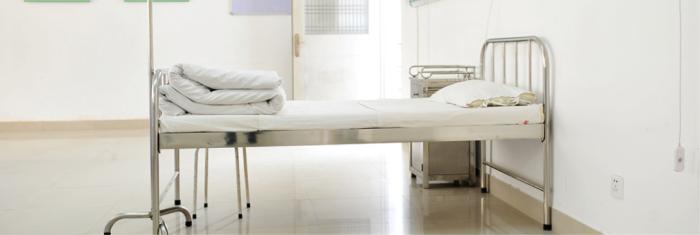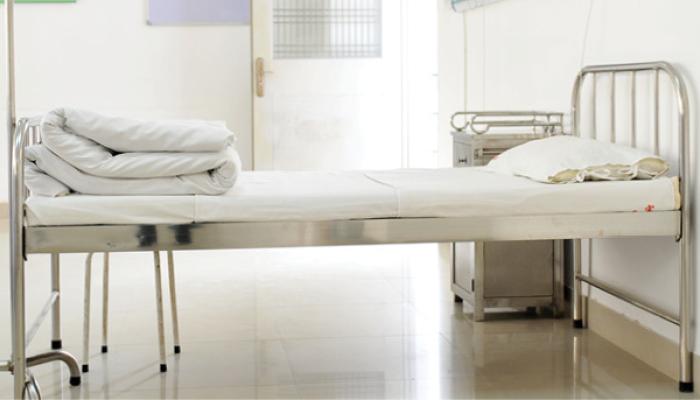
3.40 Is the Anointing of the Sick the same as extreme unction?
Anointing of the Sick is intended for anyone who is seriously ill, for people in danger of dying, and for people who have to undergo a dangerous operation, for instance. In this sacrament, God wants to give us strength, peace and courage to bear illness and injury, and sometimes also to be cured.
The priest uses blessed oil for the Anointing of the Sick. People sometimes call this ‘last rites’ or ‘extreme unction’. However, the Eucharist and not the Anointing of the Sick is the last sacrament that a person receives before death, if he is capable of it.
How was sickness viewed in the Old Testament?
In the Old Testament sickness was experienced as a sign of weakness and at the same time perceived as mysteriously bound up with sin. The prophets intuited that sickness could also have a redemptive value for one’s own sins and those of others. Thus sickness was lived out in the presence of God from whom people implored healing. [CCCC 313]
What is the significance of Jesus’ compassion for the sick?
The compassion of Jesus toward the sick and his many healings of the infirm were a clear sign that with him had come the Kingdom of God and therefore victory over sin, over suffering, and over death. By his own passion and death he gave new meaning to our suffering which, when united with his own, can become a means of purification and of salvation for us and for others. [CCCC 314]
What is the attitude of the Church toward the sick?
Having received from the Lord the charge to heal the sick, the Church strives to carry it out by taking care of the sick and accompanying them with her prayer of intercession. Above all, the Church possesses a sacrament specifically intended for the benefit of the sick. This sacrament was instituted by Christ and is attested by Saint James: “Is anyone among you sick? Let him call in the presbyters of the Church and let them pray over him and anoint him with oil in the name of the Lord” (James 5:14-15). [CCCC 315]
For whom is the sacrament of the Anointing of the Sick intended?
The sacrament of the Anointing of the Sick can be received by any Catholic whose health is in a critical state.
One can receive the Anointing of the Sick several times in one’s life. Therefore it makes sense for young people to ask for this sacrament also, if, for example, they are about to undergo a serious operation. On such occasions many Catholics combine the Anointing of the Sick with a (general) confession; in case the operation fails, they want to go to meet God with a clear conscience. [Youcat 243]
How is the Anointing of the Sick administered?
The essential ritual by which the sacrament of the Anointing of the Sick is administered consists of an anointing of the forehead and hands with holy oil, accompanied by prayers. [Youcat 244]
Who administers this sacrament?
This sacrament can be administered only by priests (bishops or presbyters). [CCCC 317]
What are the effects of this sacrament?
This sacrament confers a special grace which unites the sick person more intimately to the Passion of Christ for his good and for the good of all the Church. It gives comfort, peace, courage, and even the forgiveness of sins if the sick person is not able to make a confession. Sometimes, if it is the will of God, this sacrament even brings about the restoration of physical health. In any case this Anointing prepares the sick person for the journey to the Father’s House. [CCCC 319]
What is Viaticum?
Viaticum is the Holy Eucharist received by those who are about to leave this earthly life and are preparing for the journey to eternal life. Communion in the body and blood of Christ who died and rose from the dead, received at the moment of passing from this world to the Father, is the seed of eternal life and the power of the resurrection. [CCCC 320]
Why should the Church take special care of the sick?
Jesus shows us: Heaven suffers with us when we suffer. God even wants to be rediscovered in “the least of these my brethren” (Mt 25:40). That is why Jesus designated care of the sick as a central task for his disciples. He commands them, “Heal the sick” (Mt 10:8), and he promises them divine authority: “In my name they will cast out demons; … they will lay their hands on the sick, and they will recover” (Mk 16:17–18).
One of the distinctive characteristics of Christianity has always been that the elderly, the sick, and the needy are central to it. Mother Teresa, who cared for those who were dying in the gutters of Calcutta, is only one in a long series of Christian women and men who have discovered Christ precisely in those who were marginalized and avoided by others. When Christians are really Christian, a healing influence goes out from them. Some even have the gift of healing others physically in the power of the Holy Spirit (the charism of healing, charism). [Youcat 242]
(About James 5, 14-15) There is no doubt that this ought to be understood of the faithful who are sick and who can be anointed with the holy oil of the chrism which is prepared by a bishop. It is not just priests but all as Christians who may be anointed with this oil when it is necessary for themselves or their families. [St. Innocent I, Letter to Decentius (TCT, 322-323)]





